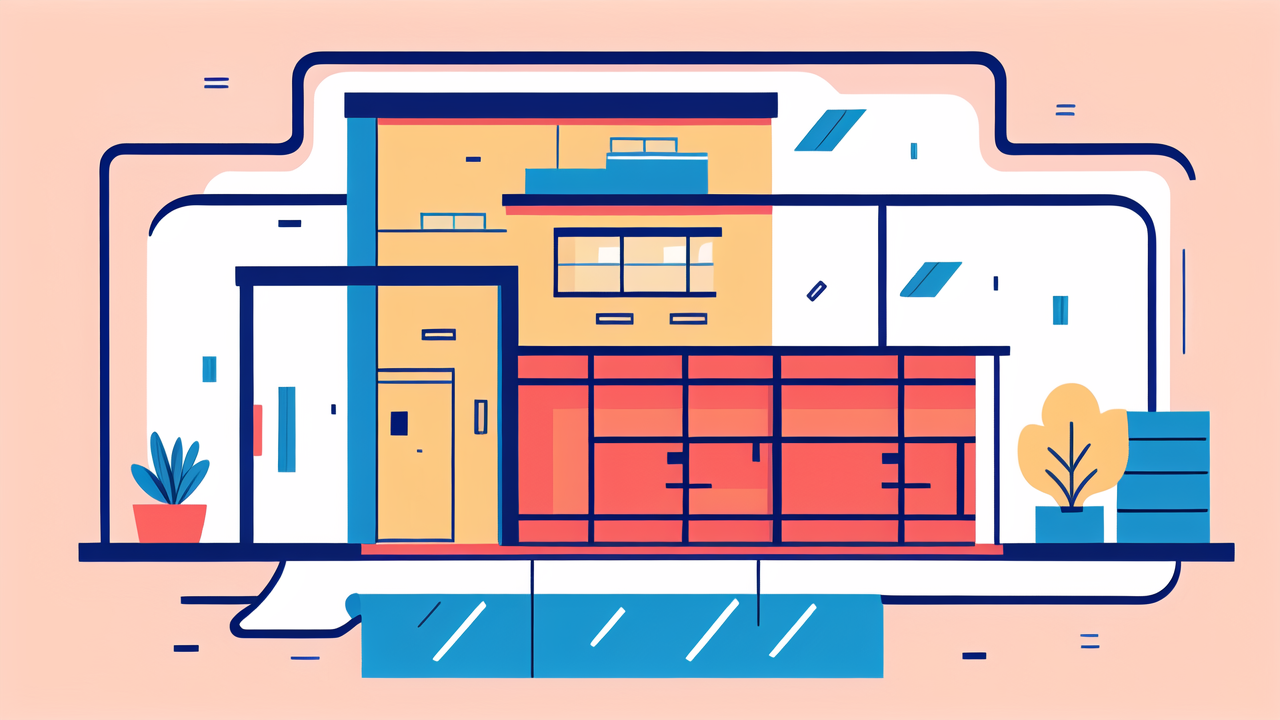Understanding the Role of Geometric Wall Panels in Security
The Importance of Visual Security in Businesses
Visual security is vital for businesses. It deters crime and creates a safe environment. Geometric wall panels offer a unique way to enhance security. They blend style with function, making spaces more secure.

These panels can be part of a larger security system. They work well with farm security cameras and other devices. The panels create a barrier that's hard to breach. This adds an extra layer of protection to your property.
Businesses benefit from the peace of mind these panels provide. They show that security is a priority. This can boost customer and employee confidence. It also helps protect valuable assets and information.
How Geometric Wall Panels Can Act as a Deterrent
Geometric wall panels do more than look good. They can deter potential intruders. The panels create a complex visual pattern. This can confuse and discourage those with bad intentions.
The panels can be designed to look like high tensile fence. This gives the impression of a strong barrier. Intruders may think twice before trying to breach such a structure.
Some panels can be made to mimic snake proof fencing. This adds another layer of psychological deterrent. It suggests that the property is well-protected against all threats.
Integrating Wall Panels with Other Security Features
Geometric wall panels work best as part of a complete security system. They can be integrated with farm security cameras. The panels can hide camera mounts or wiring. This creates a seamless look while maintaining function.
The panels can also complement high tensile fence systems. They can be designed to match or enhance existing fences. This creates a cohesive security aesthetic around the property.
For areas needing extra protection, panels can work with snake proof fencing. The combination provides both visual and physical barriers. This dual approach strengthens overall security.
Selecting the Right Geometric Wall Panel for Your Business
Material and Durability Considerations
Choosing the right material is crucial for geometric wall panels. They need to be strong and long-lasting. Popular options include metal, wood, and synthetic materials.

Metal panels offer great durability. They resist weather and wear well over time. Wood panels provide a natural look but may need more upkeep. Synthetic materials offer a balance of durability and style.
Consider the climate and location when selecting materials. Panels exposed to harsh weather need extra durability. Indoor panels may focus more on aesthetics than weather resistance.
Customization and Branding Potential
Geometric wall panels offer great customization options. They can be designed to match your brand colors and style. This helps create a cohesive look for your business.
Panels can feature your logo or other brand elements. This turns them into a marketing tool as well as a security feature. Custom designs can make your business stand out.
The patterns and shapes can be tailored to your preferences. This allows for unique, eye-catching designs. It's a chance to showcase your brand's personality through architecture.
Compatibility with Different Architectural Styles
Geometric wall panels are versatile. They can complement various architectural styles. Modern buildings often feature clean lines that work well with these panels.
Traditional structures can use panels with classic patterns. This blends security with existing aesthetics. Industrial spaces might opt for more rugged, metal-based designs.
The key is choosing panels that enhance, not clash with, your building's style. This ensures a cohesive look while boosting security. It's about finding the right balance of form and function.
Implementing and Maintaining Geometric Wall Panels
Best Practices for Installation
Proper installation is key for geometric wall panels. Start by ensuring the wall surface is clean and level. This provides a good foundation for the panels.

Use the right tools and hardware for your panel type. This ensures a secure fit. Follow manufacturer guidelines closely during installation.
Consider hiring professionals for complex installations. They can ensure panels are properly aligned and secured. This is especially important for large or intricate designs.
Routine Maintenance and Upkeep
Regular maintenance keeps geometric wall panels looking great. Clean them periodically with appropriate products. This prevents dirt and grime buildup.
Check for any loose parts or damage regularly. Address issues promptly to prevent further problems. This helps maintain both appearance and security.
Some materials may need specific care. Wood might require periodic sealing or staining. Metal panels might need rust prevention treatments in humid areas.
Troubleshooting Common Issues
Watch for common issues like fading, warping, or loosening. Sun exposure can cause fading in some materials. Address this with UV-resistant coatings or replacements.
Warping might occur due to temperature changes. Choose materials suitable for your climate to minimize this. Ensure proper installation to prevent warping.
Loose panels can compromise security and aesthetics. Regular checks help catch this early. Tighten or replace fasteners as needed to keep panels secure.
By addressing these aspects, businesses can effectively use geometric wall panels. They enhance security while adding style to modern architectural designs. With proper selection, installation, and maintenance, these panels become a valuable asset.
